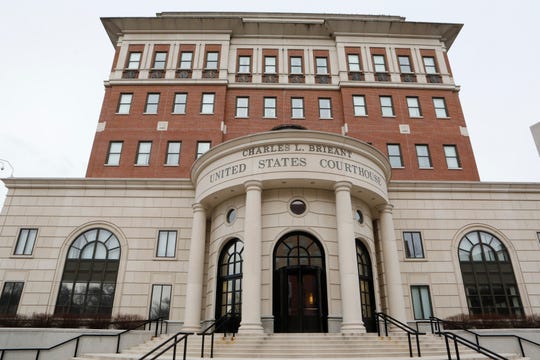Types Of Bankruptcy
Financial difficulties can be overwhelming, but you don’t have to navigate these turbulent waters alone. At Nelson & Associates, P.C., our dedicated team of bankruptcy lawyers have experience in providing comprehensive support and guidance through the complexities of bankruptcy law in New York. We aim to offer you a fresh start, relieving the stress and burden of financial struggles.
How A Bankruptcy Lawyer Can Help
We understand the pressures and challenges of facing overwhelming debt. Our team of seasoned bankruptcy lawyers is here to offer the support, advice, and representation you need to navigate through these difficult times. Here’s how we can help:
- Comprehensive Debt Assessment: We start by thoroughly reviewing your financial situation, including an analysis of your debts, assets, income, and expenses. Understanding the full scope of your financial picture allows us to identify the most appropriate path forward.
- Strategic Planning and Advice: Bankruptcy is a significant decision with long-lasting implications. Our attorneys advise whether bankruptcy is right for you and, if so, which chapter suits your circumstances. We aim to equip you with the information necessary to make an informed decision.
- Filing and Documentation: The bankruptcy process involves a complex web of legal forms, documentation, and timelines. Our team meticulously prepares and files all required paperwork on your behalf, ensuring accuracy and timeliness to avoid any unnecessary delays or complications.
- Creditor Negotiations: Dealing with creditors is one of the most stressful aspects of financial hardship. Our lawyers negotiate with creditors to potentially reduce the debt amount, halt collection efforts, and avoid foreclosure or repossession of assets.
- Court Representation: Having a skilled attorney by your side is invaluable if your case goes to court. We represent you at all bankruptcy hearings, advocating on your behalf and working tirelessly to achieve the best possible outcome.
- Guidance Through the Bankruptcy Process: From the moment you decide to pursue bankruptcy, our team is with you every step. We help navigate the complexities of the bankruptcy process, providing clear, step-by-step guidance and support.
- Post-Bankruptcy Advice: Our commitment to your financial recovery doesn’t end with the conclusion of your bankruptcy case. We offer counsel on rebuilding your credit and managing your finances post-bankruptcy, helping you lay the foundation for a more secure financial future.
At Nelson & Associates, P.C., our goal is not just to guide you through the bankruptcy process but to help you emerge stronger and ready to take on a fresh financial start. We believe in personalized care, legal excellence, and compassionate guidance for every client we serve.
Personalized Solutions Tailored to Your Unique Situation
Each financial situation is unique, and there’s no one-size-fits-all solution to managing debt. That’s why our approach begins with understanding your specific circumstances. Our experienced bankruptcy attorneys analyze your financial landscape to offer tailored advice, ensuring the best possible outcome for your case.
Experience Across All Areas of Bankruptcy Law
Chapter 7 Bankruptcy
Chapter 7 Bankruptcy, often called “liquidation” or “straight bankruptcy,” is designed to give individuals and some businesses a fresh start by discharging most types of unsecured debt. At Nelson & Associates, P.C., we understand the intricacies of Chapter 7 and are committed to guiding our clients through this process with expertise and compassion. Here’s a closer look at how Chapter 7 Bankruptcy, works and how it can be a pivotal step toward regaining financial freedom:
Qualifying for Chapter 7 Bankruptcy
- Means Test: To qualify for Chapter 7, individuals must pass a means test, which compares their income to the median income for a household of their size in their state. If their income is below the median, they qualify. If it’s above, they may still qualify based on a detailed assessment of their income and allowable expenses.
- Credit Counseling: Prior to filing, you must complete a credit counseling course from an approved agency within 180 days before your bankruptcy filing. This requirement helps ensure that you understand all of your options and the implications of bankruptcy.
The Process of Filing Chapter 7 Bankruptcy
- Filing the Petition: The process begins by filing a petition with the bankruptcy court serving your area. Along with the petition, you’ll need to file several documents, including schedules of assets and liabilities, current income and expenditures, a statement of financial affairs, and executory contracts and unexpired leases.
- Automatic Stay: Once you file for Chapter 7, an automatic stay immediately goes into effect. This legal provision halts most creditors from continuing with collection actions against you, providing relief from harassing phone calls, lawsuits, wage garnishments, and other collection activities.
- Trustee Appointment: The court appoints a bankruptcy trustee to oversee your case. The trustee’s role includes reviewing your finances, selling non-exempt property to pay creditors, and conducting the creditors’ meeting (341 meeting).
- Creditors’ Meeting (341 Meeting): Approximately a month after filing, you’ll be required to attend the creditors’ meeting, where the trustee and any creditors who choose to attend can ask you questions about your finances and the filed documents.
- Discharging of Debts: Most of your debts will be discharged after the meeting, meaning you’re no longer legally required to pay them. Some debts, like alimony, child support, certain taxes, and student loans, typically cannot be discharged in Chapter 7.
What Happens to Your Property
- Exemptions: Chapter 7 allows you to keep certain exempt property, but the trustee can sell non-exempt assets to pay your creditors. Exemptions vary by state and may include items like your home, car (up to a certain value), personal belongings, and retirement accounts.
- Reaffirmation Agreements: You may choose to keep certain secured debts like a car loan or mortgage by signing a reaffirmation agreement, which excludes these debts from the bankruptcy discharge and requires you to continue making payments.
Benefits and Considerations
Filing for Chapter 7 can provide a clean slate by eliminating most types of debt and stopping creditor harassment. However, it also has long-term implications for your credit and might not be suitable for everyone, especially those with significant non-exempt assets or certain types of non-dischargeable debt.
At Nelson & Associates, P.C., we can help you navigate the complexities of Chapter 7 Bankruptcy, ensuring that you understand both the benefits and the limitations. Our goal is to empower you to make informed decisions about your financial future. If you’re considering Chapter 7 Bankruptcy or want to learn more about your options, contact us for a confidential consultation.
Chapter 13 Bankruptcy
Chapter 13 Bankruptcy, often referred to as a “wage earner’s plan,” allows individuals with regular income to develop a plan to repay all or part of their debts. Unlike Chapter 7, which involves liquidating assets to pay creditors, Chapter 13 focuses on debt reorganization and repayment over three to five years. This chapter provides a pathway for individuals to keep their property and avoid foreclosure while reorganizing their financial obligations under a more manageable structure. At Nelson & Associates, P.C., we specialize in guiding our clients through the complexities of Chapter 13 Bankruptcy, ensuring a tailored approach that meets their unique financial situations. Here’s a detailed look at Chapter 13 and its key components:
Qualifying for Chapter 13 Bankruptcy
- Regular Income: Chapter 13 requires you to have a regular source of income to qualify. This income provides the basis for your repayment plan.
- Debt Limits: There are debt limits for filing under Chapter 13. As of 2023, unsecured debts must be less than $419,275, and secured debts less than $1,257,850. These figures are adjusted periodically for inflation.
- Tax Filings: You must be up-to-date on your tax filings. You’ll need to have filed your state and federal tax returns for the four tax years prior to your bankruptcy filing.
The Process of Filing Chapter 13 Bankruptcy
- Filing the Petition: The bankruptcy process begins with filing a petition in your area’s bankruptcy court. You’ll also need to submit detailed documentation of your financial status, including assets, liabilities, income, expenses, and a comprehensive list of creditors.
- Automatic Stay: Filing the petition triggers an automatic stay, immediately stopping most collection actions against you and your property by creditors.
- Repayment Plan Submission: You must file a repayment plan within 14 days of filing the petition. This plan proposes how you will repay your debts over a three—to five-year period. The length of your plan depends on your monthly income relative to the median income for a household of your size in your area.
- Trustee and Plan Confirmation: A trustee will be appointed to oversee your case, including collecting payments and distributing them to creditors. After filing your repayment plan, a confirmation hearing will be held where the court will either approve or request modifications to your plan.
- Making Plan Payments: Upon plan confirmation, you will start making payments to the trustee, who then disburses funds to your creditors according to the plan’s terms.
- Debt Discharge: After completing the repayment plan, most of your remaining unsecured debts will be discharged. However, some debts, like certain taxes, alimony, and child support, are not dischargeable.
Benefits of Chapter 13 Bankruptcy
- Home Foreclosure Avoidance: Chapter 13 can stop foreclosure proceedings and allow you to catch up on missed mortgage payments over time.
- Loan Modification: In some cases, Chapter 13 allows modifying loan terms on secured debts other than a mortgage for your primary residence.
- Protection of Co-signers: Chapter 13 protects individuals who have co-signed your debts.
- Flexible Debt Repayment: The repayment plan allows for debts to be paid back in full or in part, depending on your income, debt types, and the amount of non-exempt property you have.
Considerations
Chapter 13 Bankruptcy requires a commitment to a three to five-year repayment plan, which can be a significant financial undertaking. It’s crucial to realistically assess your income and expenses to ensure that you can maintain the plan payments over time.
At Nelson & Associates, P.C., our experienced bankruptcy attorneys can help you understand the intricacies of Chapter 13 Bankruptcy and determine if it’s the right choice for your situation. We work closely with our clients to develop feasible repayment plans that respect their financial capabilities while maximizing debt relief. If you’re considering Chapter 13 Bankruptcy or wish to explore your options, contact us for a confidential consultation.
Ready to Take Control of Your Financial Future?
Don’t let overwhelming debt dictate your life. At Nelson & Associates, P.C., we’re here to help you navigate the complexities of bankruptcy with confidence and compassion. Whether Chapter 7 or Chapter 13 is right for you, our experienced team is committed to finding the best path forward for your unique situation.
Contact us today for a confidential consultation.



